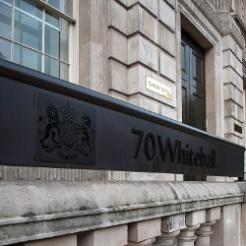Cabinet Office minister Matthew Hancock has said he did not discuss the anti-advocacy clause that has been introduced to government grant contracts with the Institute of Economic Affairs, which had campaigned for the policy.
Speaking yesterday in the House of Commons, Anna Turley, Labour shadow minister for civil society, asked Hancock to disclose the details of any communications between himself, or his office, and the IEA regarding the regulation. She also asked that all the submissions and advice that he received from the civil service are published.
In response, Hancock said: “I did not have any discussions with the IEA on this. It is about ensuring that taxpayers’ money is spent on good causes and the right things, not on lobbying government. It is right that taxpayers’ money should be spent on the things for which it was intended, not on ensuring that lobbyists can take politicians out for lunch.”
The clause was announced by the Cabinet Office last month. It bans charities and other organisations from using government grants to lobby government and Parliament. It was later revealed that Hancock had taken a £4,000 donation from the IEA in the weeks prior to the announcment.
Commenting on Hancock’s response yesterday, Sir Stephen Bubb, chief executive of Acevo, said that his statement raises serious questions. Bubb said that “given that the policy was proposed by the IEA’s own reports, why would the minister not think it appropriate to discuss these matters with either the IEA, their employees, or their chair – with whom he had a long-standing financial relationship - beforehand?”
He added: “Furthermore, given that we know that the IEA had conversations with the regulator prior to publication, and the regulator’s chair is appointed by the minister’s office, why would the minister not think it prudent to enjoin both the regulator and the IEA in those conversations?”
Bubb said that Acevo is concerned that the facts as reported present an “opaque picture”, and is calling on the minister to disclose full details of meetings with both the IEA and the Charity Commission that pertain to the anti-advocacy clause.
He said: “The minister further claimed that the regulation is about preventing ‘lobbying over lunches’ by charities of government; this is an unfortunate misunderstanding of the harm his clause will cause as it is.
“We hope and trust that, if the minister did indeed refuse to listen to the IEA prior to the implementation of their own policy idea, he will at least do the right thing, listen to the 140 organisations who wrote to the Prime Minister explaining the harm his actions have already begun to cause, and withdraw this harmful regulation.”
NCVO in discussions with the Cabinet Office
NCVO met Cabinet Office officials in the grant efficiency team last week to raise questions about the scope of the anti-advocacy clause.
They revealed that the clause is “not intended to prevent any specific activities”, and that “giving evidence to Parliament at Parliament’s request would not be seen as lobbying – but submitting written evidence proactively may be, if such activities were not in the original grant agreement”.
Charlotte Ravenscroft, head of policy and public services at NCVO, wrote in a blog post that the responses from the Cabinet Office “reflect a limited understanding of the sector and the potential impact of the clause on organisations that are subject to it”.
She said: “The overall message this clause sends to charities is a negative one. It implies that government will take a critical view of any campaigning or lobbying activity and that you could risk losing your grant funding if a minister or official believes you have crossed a very vaguely drawn line about how it was to be spent.
“Hence, as we’ve already heard, charities subject to the clause already are erring on the side of caution. We continue to believe that this clause will be counterproductive to government’s own aims by deterring charities from engaging in the policy process.”









